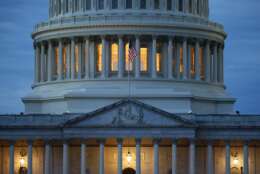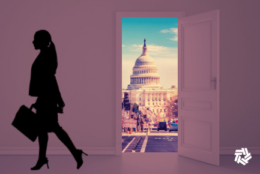Covid-19
-
Congress left town without a plan to tackle a growing list of priorities that must get done, in some cases, by Sept. 30. They include a coronavirus relief package, bailout money for U.S. Citizenship and Immigration Services and the Postal Service, and oh yeah, a plan to avoid a government shutdown.
August 17, 2020 -
Some agencies' new routines might be here to stay, according to IT security officials who say the feasibility of long-term telework has opened the door to a reimagining of the civil service.
August 14, 2020 -
Companies filing for reimbursements under $2 million may get streamlined service.
August 14, 2020 -
Best listening experience is on Chrome, Firefox or Safari. Subscribe to Federal Drive’s daily audio interviews on Apple Podcasts or PodcastOne. Much of the controversy surrounding a possible November election by mail centers on the Post Office. Does…
August 14, 2020 -
Can we all agree, mass telework and virtual meetings and the rest of it, are getting old?
August 14, 2020 -
The Census Bureau's big show has been beset with politics, the vicissitudes of technological innovation, and now the pandemic.
August 13, 2020 -
Congress appropriated trillions in response to the pandemic. A surprisingly small fraction of that money went to contracts awarded by agencies.
August 12, 2020 -
Six months into an historically-lethal pandemic that potentially threatens everybody on the planet is probably a pretty good time to update or begin your personal financial checklist.
August 12, 2020 -
When the record-long bull market ended earlier this year, some investors decided to cut their losses, going into the G fund. Abraham Grungold, a long-time fed and financial coach, said that was a big mistake.
August 11, 2020 -
As Congress debates, to put it politely, what if anything should be in a next pandemic relief legislation, some members are starting to ask if they and their staffs ought to be tested for the pesky germ.
August 10, 2020 -
In today's Federal Newscast, a bipartisan group of senators is pushing for more funding for the National Institutes of Health.
August 10, 2020 -
Issuing regulations on the new paid parental leave benefits is a key step toward implementing the new program, which goes into effect Oct. 1. They're 85 pages long, and be sure to read the fine print.
August 10, 2020 -
This week on Fed Access, Evan Lesser, founder and president of ClearanceJobs.com, joins host Derrick Dortch to give us an update on how the security clearance process is being affected by the federal restrictions put in place during the Covid-19 pandemic.
August 07, 2020 -
Security and risk leaders need to live in the new normal, but the questions they should be asking aren’t new.
August 07, 2020 -
New regulations from the Office of Personnel Management, effective Monday, detail how "essential" federal employees can hold on to the annual leave they'd otherwise have to forfeit at the end of the year because their service is needed during the coronavirus pandemic. The regulations apply to future national emergencies too.
August 07, 2020














